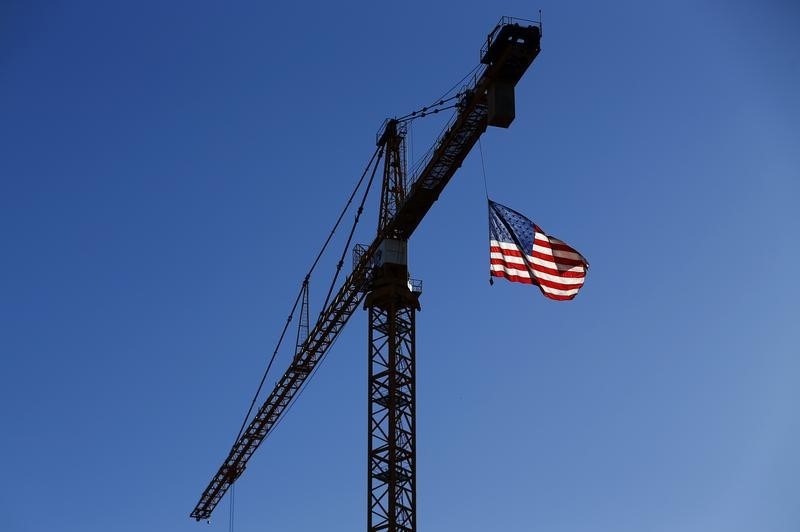(Bloomberg) -- Economists expect U.S. first-quarter growth to decelerate less than previously thought even as they cut forecasts for the rest of the year, projecting a second-quarter rebound will fade as the effects of tax cuts wane.
The median estimate for growth in the first three months of the year increased to 1.6 percent from 1.5 percent seen last month, according to an April 5-10 Bloomberg News survey. At the same time, forecasts for the second quarter held at 2.6 percent while those for the third edged down to 2.2 percent and were also lower for the fourth, at 2 percent.
The shift left full-year 2019 growth forecasts unchanged at 2.4 percent -- followed by 1.9 percent in 2020 -- indicating most economists remain skeptical that President Donald Trump will enjoy a second straight year of around 3 percent expansion. The projections also reinforce the Federal Reserve’s patient stance on interest rates as policy makers gauge slowing global growth and subdued inflation.
The boost in first-quarter estimates reflects forces such as slower imports and higher-than-expected inventory accumulation, which could weigh on growth this year. Mark Zandi, chief economist at Moody’s Analytics Inc., has bumped up his first-quarter forecast to 2.5 percent from 1.1 percent and lowered his estimates for the second, third and fourth quarters compared with a March survey.
For the first quarter, “growth has been juiced up by a much bigger gain in inventories than we had estimated a month ago,” Zandi said. “Inventories are becoming a problem, and we have businesses working off those inventories in Q2, Q3 and into Q4.”
Surprise Drop
“Businesses were surprised at how strongly, quickly demand fell off coming into 2019,” Zandi said. “They just produced too much.”
The Commerce Department will release its first-quarter gross domestic product report April 26.
From a broader perspective, slower growth in 2019 is partly due to the waning impact of Republican tax cuts. The fiscal stimulus helped push the full-year growth rate in the fourth quarter to 3 percent, a level Trump has boasted of achieving -- and now may be at risk.
The hope for the tax bill was that cutting corporate taxes would provide a sustainable boost to business investment, yet “for whatever reason, we just haven’t seen that,” said Jay Bryson, global economist at Wells Fargo (NYSE:WFC) & Co.
The survey also showed economists expect Fed policy makers will keep rates on hold until through the end of next year. A Bloomberg survey in late March showed 20 of 37 analysts polled believe the Fed is done raising rates in this cycle.
